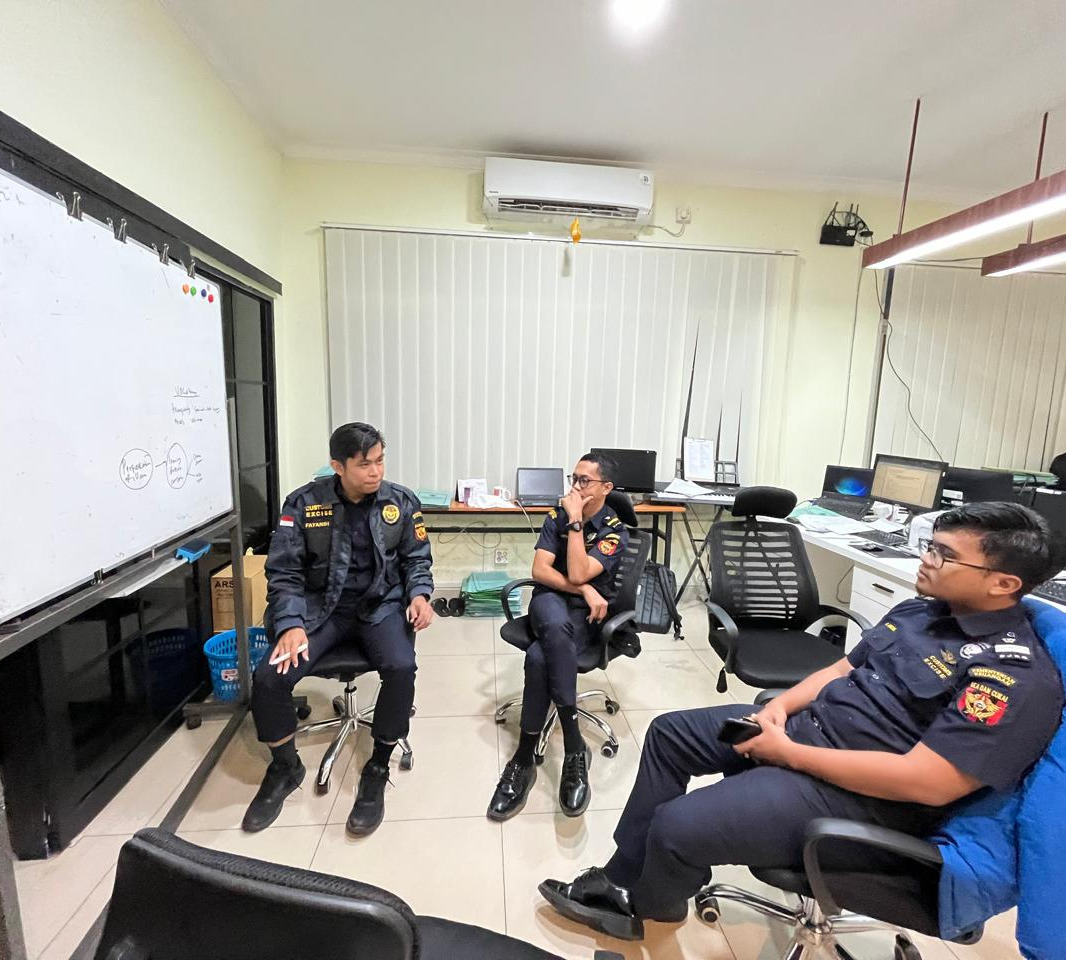عَنْ أَبِي هُرَيْرَةَ رَضِيَ اللهُ عَنْهُ قَالَ: قَالَ رَسُولُ اللَّهِ صلى الله عليه و سلم
"مِنْ حُسْنِ إسْلَامِ الْمَرْءِ تَرْكُهُ مَا لَا يَعْنِيهِ"
. حَدِيثٌ حَسَنٌ، رَوَاهُ التِّرْمِذِيُّ [رقم: 2318] ، ابن ماجه [رقم: 3976].
On the authority of Abu Hurayrah (may Allah be pleased with him) who said: The Messenger of Allah (peace and blessings of Allah be upon him) said:
“Part of the perfection of one’s Islam is his leaving that which does not concern him.” (A hasan (good) hadeeth which was related by at-Tirmidhi and others in this fashion)
Summary of Discussion:

This hadith is so related to these days where most people especially adults feel so anxious about their lives. The overthinking we had each day gains unnecessary worries that are not in line with this hadits "leaving that which does not concern him."
There are 3 things that we should avoid when there are no benefits in it, such as:
1. Don't speak unless it is useful.
conversation can lead the speakers to somewhere good or bad based on the benefit in it, namely there are 4 types of conversation:
- useful
- harmful
- worrisome (in the middle of useful and harmful)
- impractical (useless)
despite all types of conversation mentioned above, muslims only speak the "useful" things.
2. Don't do bad things both to others and our own selves.
"Bad Things" can be referred to something which can hurt anybody including our selves. In order to know the bad things, we need to learn about the concept of "knowledge" and "wisdom" first.
Knowledge and wisdom are two distinct concepts that are often used interchangeably but hold different meanings. While knowledge refers to the acquisition of information and facts, wisdom involves the application of knowledge along with experience, insight, and good judgment.
3. No need to overthink the unnecessary.
"Thinking" is part of the "act" we do as a muslim, this is the least thing we can do when something bad occured and appeared to us. Referring to the 34th Arbain Hadith which means: From Abu Sa'id Al-Khudri radhiyallahu 'anhu, he said, "I heard the Messenger of Allah. said, 'Whoever of you sees evil, change it with your hand. If you can't, change it verbally. If you can't, deny it with your heart, and that is the weakest faith."
Vocabulary:
1. **Anxious** - Worry or nervousness about something - **Cemas**
2. **Overthinking** - Excessive thinking about something - **Merenung secara berlebihan**
3. **Unnecessary** - Not needed or required - **Tidak perlu**
4. **Concern** - A matter of interest or importance - **Kepentingan**
5. **Impractical** - Not useful or realistic - **Tidak praktis**
6. **Wisdom** - The ability to make sound judgments and decisions based on knowledge and experience - **Kebijaksanaan**
7. **Interchangeably** - Used in place of each other - **Saling berganti**
8. **Acquisition** - The act of gaining or obtaining something - **Perolehan**
9. **Insight** - The ability to understand or gain an accurate and deep understanding - **Wawasan**
10. **Judgment** - The ability to make considered decisions or come to sensible conclusions - **Penilaian**
Grammar Focus:
-
Complex Sentences: The text uses complex sentences with multiple clauses to convey detailed information.
Example: "This hadits is so related to these days where most people especially adults feel so anxious about their lives."
-
- Main clause: "This hadits is so related to these days."
- Subordinate clause: "where most people especially adults feel so anxious about their lives."
-
Compound Sentences: Sentences are joined using conjunctions to connect related ideas.
Example: "Knowledge and wisdom are two distinct concepts that are often used interchangeably but hold different meanings."
-
-
- Main clause: "Knowledge and wisdom are two distinct concepts."
- Conjunction and additional clause: "that are often used interchangeably but hold different meanings."
-
-
Lists: Lists are used to organize information and present it clearly.
Example: "There are 3 things that we should avoid when there are no benefits in it, such as:"
-
-
- Lists items: "1. Don't speak unless it is useful.", "2. Don't do bad things both to others and our own selves.", "3. No need to overthink the unnecessary."
-
Comments powered by CComment